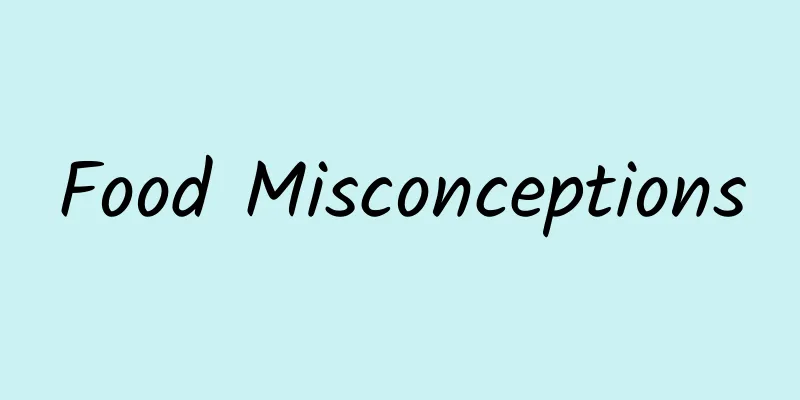Food Misconceptions

|
Popular Science on Food Misconceptions: Future Agriculture and Human Health In the fast-paced modern life, people's demand and cognition for food are constantly changing. With the rapid development of agricultural technology, the sources and types of food on our tables are becoming increasingly rich, but at the same time, various misunderstandings about food are also emerging. These misunderstandings not only affect people's eating habits, but also pose a potential threat to human health to a certain extent. Therefore, this article aims to popularize some common food misunderstandings and explore how agriculture can better protect human health in the future. 1. Is organic food definitely healthier? With the improvement of health awareness, organic food has gradually become a representative of healthy diet that people pursue. However, whether organic food is necessarily healthier is a question worth discussing. Organic food refers to food that does not use chemically synthesized pesticides, fertilizers, growth regulators and other substances during the growth process. Although organic food avoids chemical residues during the production process, it does not mean that they are healthier than ordinary food. Scientific research shows that there is no significant difference in the nutritional content of organic food and ordinary food. Whether it is protein, fat, carbohydrates or vitamins and minerals, the content of both is basically the same. In addition, organic food is not completely risk-free. Since organic farming generally does not use chemical pesticides, organic crops may be more susceptible to pests and diseases, thus affecting yield and quality. Therefore, when choosing food, we don't have to be overly superstitious about organic labels. A truly healthy diet should be diverse and balanced, rather than just pursuing a single type of food. 2. Are genetically modified foods a scourge? Genetically modified food has been a controversial topic in recent years. Many people have strong resistance to genetically modified food, believing that they are a scourge and will cause serious harm to human health. However, is this really the case? Genetic modification is a method of creating new varieties by changing the genetic material of an organism. In the agricultural field, genetic modification is mainly used to improve crop yields, pest resistance, and nutritional value. Although genetic modification has many potential advantages in theory, there are still many uncertainties about its long-term safety and impact on human health. However, this does not mean that we should reject all GM foods. We need to conduct rigorous scientific evaluation and supervision on every GM crop and food. Under the premise of ensuring safety, GM foods may play an important role in solving global food shortages and improving agricultural production efficiency. The future direction of agricultural development should be to make full use of modern scientific and technological means, including genetic modification technology, to improve agricultural production efficiency and quality. At the same time, we also need to strengthen the supervision and evaluation mechanism to ensure that all genetically modified foods on the market have undergone rigorous safety testing. 3. Is a vegetarian diet definitely healthier? In recent years, vegetarianism has gradually become popular around the world. Many people choose to be vegetarian for health, environmental protection or religious reasons. However, whether vegetarianism is necessarily healthier is a question that requires specific analysis. Vegetarians usually do not consume any products from animals, including meat, fish, poultry, eggs, milk, etc. Such eating habits do help reduce the intake of saturated fat and cholesterol, thereby reducing the risk of cardiovascular disease. In addition, vegetarianism also helps reduce the burden on the environment and the consumption of animal resources. However, vegetarianism is not suitable for everyone. For certain groups of people, such as children, pregnant women, the elderly, and people with certain diseases, a completely vegetarian diet may lead to nutritional deficiencies or imbalances. For example, nutrients such as protein, iron, calcium, and vitamin B12 are more abundant in animal foods, while the sources of these nutrients in vegetarian foods are relatively limited. Therefore, when choosing a vegetarian diet, we need to pay more attention to food matching and nutritional supplements. In the future, agriculture should be committed to providing more diverse and nutritious plant-based food options. By improving crop varieties and planting techniques, we can increase the nutritional value of plant-based foods to meet the needs of different groups of people. At the same time, we also need to strengthen the popularization and education of vegetarian nutrition knowledge among the public to help people better understand and practice vegetarianism. IV. Prospects for future agriculture and human health Faced with challenges such as global population growth, resource scarcity and climate change, future agricultural development needs to pay more attention to sustainability and human health. The following are some possible development trends and prospects: Precision agriculture: Through the use of big data, the Internet of Things, artificial intelligence and other technical means, accurate management and optimization of farmland can be achieved. This can not only improve the yield and quality of crops, but also reduce the use of pesticides and fertilizers, and reduce the burden on the environment. Development of functional foods: As people's demand for health continues to increase, agriculture will pay more attention to the development of functional foods in the future. These foods not only have basic nutritional value, but also have specific health functions, such as enhancing immunity and lowering blood sugar. By improving crop varieties and planting techniques, we can cultivate more agricultural products with health functions. Application of biotechnology: Biotechnology will play an increasingly important role in future agriculture. In addition to transgenic technology, emerging technologies such as gene editing and synthetic biology are expected to bring revolutionary changes to agricultural production. These technologies can help us better understand the growth patterns of crops and improve their stress resistance and nutritional value. Diversified food sources: In order to cope with the problem of global food shortage, agriculture needs to expand more food sources in the future. In addition to traditional crops, marine resources, insects, etc. may become new food sources. By using these resources scientifically and rationally, we can provide humans with more diverse and nutritious food choices. In short, the development of agriculture in the future needs to be closely integrated with the needs of human health. Through technological innovation and the concept of sustainable development, we can provide the global population with safer, healthier and more nutritious food and welcome a better future together. |
>>: A high-salt diet is ruining your kids
Recommend
Can pregnant women get hair extensions during pregnancy?
During pregnancy, some beauty-conscious women wil...
Is vaginal douching good?
Some female friends have some questions about vag...
How many days of withdrawal bleeding after taking birth control pills
Once a woman takes birth control pills, she will ...
How much does a Heytea curry chicken bun cost? Is the Heytea curry chicken bun delicious? How does it taste?
We all know that Heytea launches many different f...
Which one is better, Chaoshan beef balls or beef tendon balls? What is the difference between Chaoshan beef balls and beef tendon balls?
We all know that Chaoshan beef balls and beef ten...
Treatment of bilateral hydrosalpinx
The choice of method is critical in the treatment...
Why do women's private parts smell fishy?
Some young women have increased vaginal discharge...
What are the benefits of sit-ups for girls?
Summer has quietly arrived, and it is time to wea...
Is it normal to have your period five days early?
Under normal circumstances, women have their mens...
Hand tremors are Parkinson's? Do you know these misconceptions?
Parkinson's disease (PD), also known as tremo...
Pictures of genital hair removal
With the development trend of medicine today, peo...
The fetus is one week older than the actual gestational age
There are many problems during pregnancy. Therefo...
Granulation on the inner side of the vagina
There are two reasons why women grow granulations...
Can breast duct ectasia be cured?
There are many women who suffer from breast duct ...
How to improve the quality of eggs?
Every pregnant mother wants to give birth to a he...









